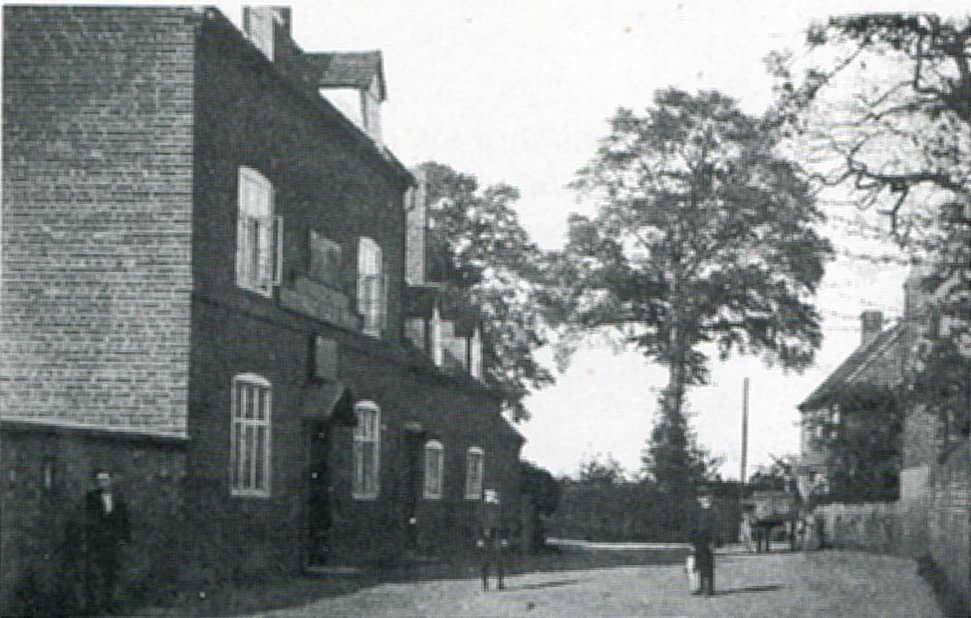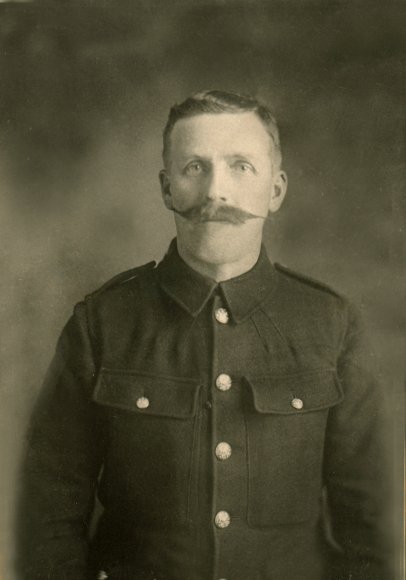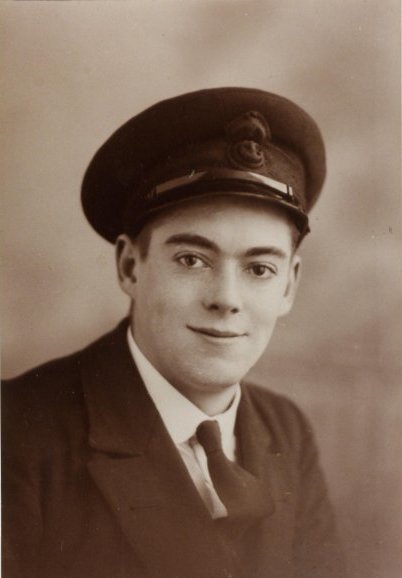
Coach & Horses
|
HARVINGTON AT WAR
|

Julian Rawes, Crooked Walls.
Harvington Death Medals
The Death Medal was a bronze medallion sent to widows or parents of soldiers who fell, killed that is in the Great War of 1914-1918. These round discs were embossed with the number, rank and name of the dead soldier. They were sent by a tender hearted government who had just killed a million or so of their own citizens.They said there had to be a war of course because ordinary people were raising large families, very often ten or more children and this population explosion was about to end in revolution as there had been in France and was about to be in Russia. Killing off those of marriageable age was the answer.
In 1914 Harvington was a small village. All young men between 18 and 30 were called up or volunteered to join the armed forces. Volunteering was a point of honour, in view of public pressure. So there were to be casualties, not many of course as the war was expected to be over by Christmas. Two or three maybe. I can tell you that seventeen men fell, killed that is. Seventeen young men out of the tiny village of Harvington. My family got three Death Medals. Two of my Mother's brothers. One of my Father's brothers. You can see their seventeen photographs in a single frame in the village church. Seventeen photographs of handsome lads. Their hundred year old eyes stare back at you unflinchingly. Seventeen names. Seventeen Death Medals. They died in horrific circumstances blasted by bullets, speared by bayonets, shattered by shrapnel, buried in mud, trench feet covered with flies and rained on by creeping barrages and poison gas.
In the village church before the next Great War a massive shell stood so that people could remember. It was about shoulder height; too huge for your arms to encircle it. We children were warned not to touch it, because if it tipped over it could smash your bones. These shells were sent off in barrages of several thousand at a time. A survivor said the shells went overhead like express trains, followed by a big, big bang that shook the earthen trenches miles away in a continuous rumble. Post traumatic stress disorder was not recognised. Desertion carried an immediate summary penalty of death by firing squad at dawn the next day.
Death Medals were mostly left in their registered envelopes, hidden away in unopened drawers. Now that the survivors are all dead you can buy one in a Car Boot sale for about seventy five pounds (2017).
An American, General Vinegar Joe Stillwell was rumoured to have passed through Harvington. He said War is Hell let loose. That seems a reasonable assessment.
An artillery shell from World War 1, 1914-1918.
As one entered the church in the 1930's, across the aisle there stood an artillery shell from the first world war of 1914 to 1918. Shoulder height it pointed upwards, its huge girth and weight rendered it stable, though a sign warned onlookers not to touch it. It was polished brown with an etched pattern about 15 cm deep around its circumference with a smooth panel with a few golden words which may have been "They shall not grow old as we that are left grow old" an excerpt from Evesham's Lawrence Binyon's poem.In the internal between the two world wars Britain sold all its scrap metal to Germany which was not a very good idea so when the second world war started in the 1940's the Government had little scrap metal for munitions and had to commandeer all scrap metal such as fences, gates, road signs and the many large metal advertising signs which adorned the shops on their outside walls (a yellow Colman’s Mustard was one). The church's artillery shell was commandeered for reclamation. Harvington's school metal railings were not taken as the authorities excepted schools and grazing herds but the Reading Room then opposite the school lost its railings as did Cedar Lodge and the Village Hall alongside. Many pianos were donated.
The above items were kindly donated in 2016 by Joseph Cook, Aylesbury, born in 1929, son of Alice Mary Cook and younger brother of Steve Cook of Harvington.
The artillery shell was given to the Parish as a tribute for fund raising that the village had carried out during the war.

